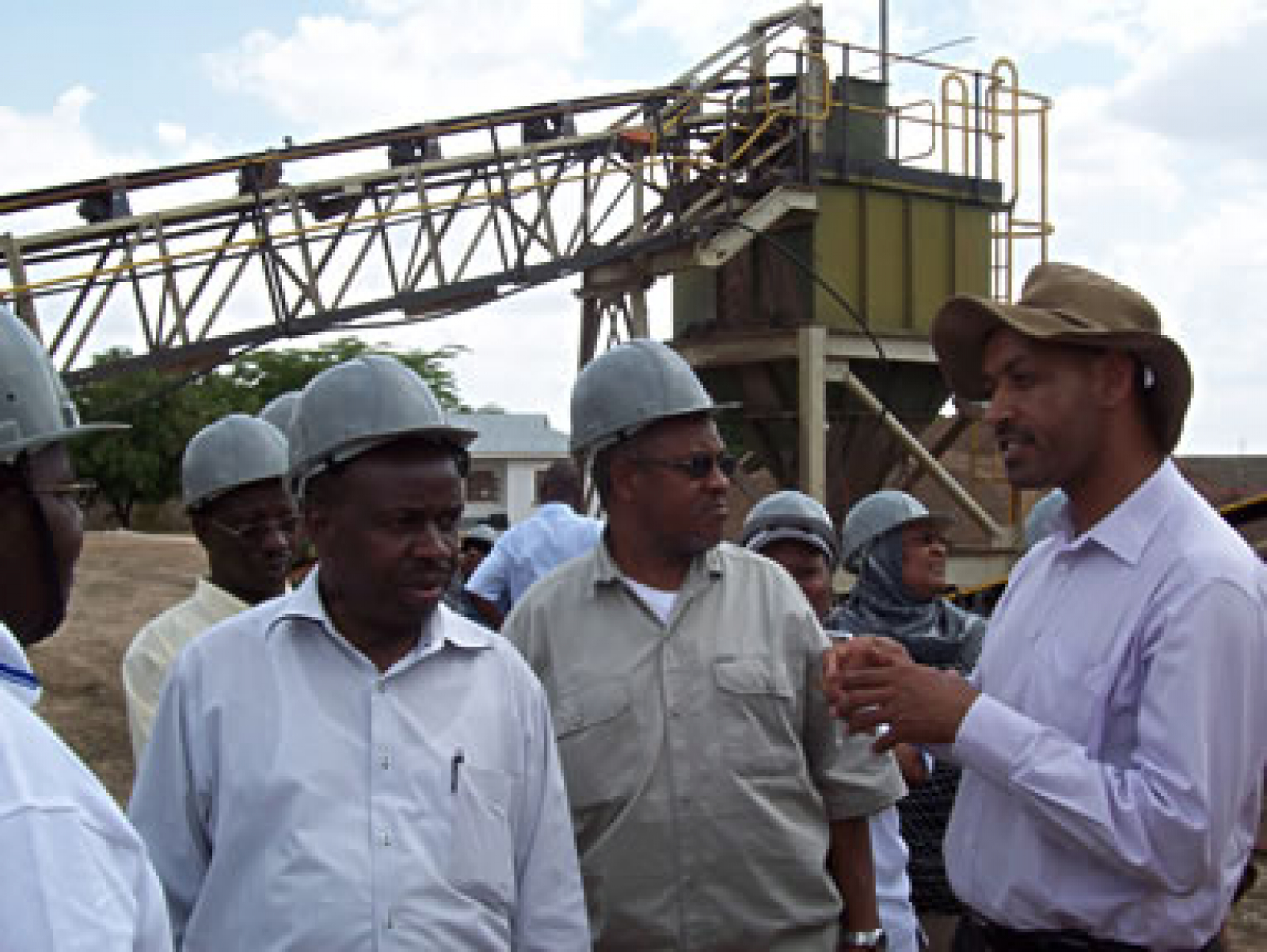
SHARE
To enrich their understanding of mining policy issues, a group of East African legislators visited diamond and gold mines in Tanzania recently as part of an effort to improve legislative oversight of extractive industries. NDI helped arrange the visit and created background materials on the issues for the lawmakers.
During the three-day trip – to the Shinyanga, Kahama, and Mwanza districts in northeastern Tanzania – the 14 parliamentarians visited with industry operators from the El Hillal diamond mine and the Bulyanhulu and Geita gold mines and consulted with local district government officials as well as civil society organizations based around the mines. The legislators were from the Inter Parliamentarian Relations Committee on Natural Resources of the East African Legislative Assembly (EALA).
NDI has been working with legislators on extractive industry oversight since 2005, when it began work on a nine-country survey report, Transparency and Accountability in Africa’s Extractive Industries: The Role of the Legislature, published in 2007. The goal of NDI’s program is to promote legislative engagement in extractive industry oversight in Africa and to improve cooperation and coordination among legislatures, civil society, governments, and industry to ensure that citizens’ interests are represented in the dispersal of their countries’ natural resources.
During the November fact-finding visit, the legislators examined where resources were going, how revenues were managed, the environmental impact of mining, social and development programs for employees, and industry standards as well as potential reforms that might be needed.
The Inter Parliamentarian Committee was established to implement a resolution to foster cooperation among East African legislatures on the management and oversight of the region’s oil and mineral resources that was drafted by representatives of the East African Legislative Assembly last year with the goal of reversing the role natural resource wealth has traditionally played in fueling conflict and corruption in many African countries.
Recently, two reports on mining – one commissioned by the Tanzanian government, the Bomani Commission report, and A Golden Opportunity, published by a coalition of civil society groups – were released and widely covered in the Tanzanian media. Both identify needed mining sector reforms. The Bomani report was the first review of the sector that was released to the public and debated by parliament, an indication that political momentum on the topic is growing, creating a potentially increased role for parliament.
The recommendations in the Bomani report provide a framework for improving the government’s ability to manage and oversee the mining sector, promote sustainable development and reduce poverty, increase indigenous expertise in mining, address environmental challenges, increase transparency and accountability in the management of revenue, and address the social and economic challenges facing mining communities.
However, the recommendations in the report do not ascribe a key role to parliament in oversight of the mining sector To fill this gap the Inter Parliamentarian Committee will develop a set of recommendations for the Tanzanian parliament that identify policy issues that parliament would be best positioned to address. The committee will also develop a set of recommendations for the EALA that identify ways it can reinforce, at the regional level, parliamentary engagement on issues raised in the report. NDI is assisting in these tasks. The Inter Parliamentarian Committee resolved to pass legislation to empower local governments in Tanzania to play a greater role in influencing mining policy and pressing for the use of mining revenue for development projects.
Pictured above: East African lawmakers observe mining operations during a site visit in Tanzania.
–
Published on March 12, 2009


